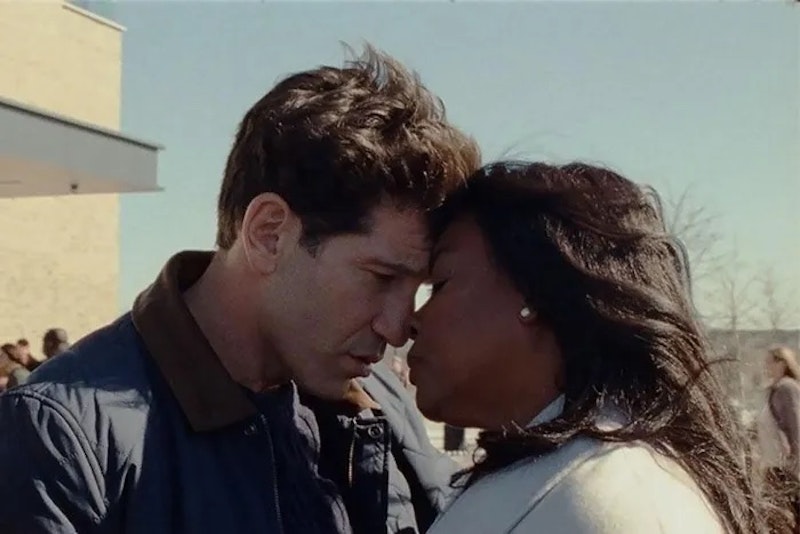Ava DuVernay’s Origin is one of several movies this year that likely grew out of the post-George Floyd racial reckoning. But rather than a rehash of what’s already been discussed, Origin is more interesting than most such cinematic efforts. The film is unwieldy, and nowhere close to the achievement that was DuVernay’s Selma, from 2014. But it’s still a fascinating and unique take on its subject matter.
Origin is inspired by Isabel Wilkerson’s bestselling 2020 book Caste: The Origins of Our Discontents, and it comes at the subject matter in two different ways: It explores Wilkerson’s thesis, about how the different forms of prejudice in the world are similar, with an exploration of Wilkerson’s own life and her process of researching and writing the book. Aunjanue Ellis-Taylor, Oscar-nominated for King Richard, plays Wilkerson.
Wilkerson’s thesis isn’t easily digestible, which is good. She finds commonalities between prejudices and injustices around the world and throughout history, including racial discrimination in America, the Nazi Holocaust, and the caste system in India. The India material, in particular, is fascinating, as that’s something that most non-South Asian people know next to nothing about. The Holocaust story, told mostly in flashbacks, is less successful, mostly because the film gets away from it for long stretches. We also see Wilkerson’s reporting process, which includes everything from visits to Eastern Europe and India, to friends and editors treating her idea with skepticism, pushing her to better develop it.
The other half of the film is the backstory of Wilkerson’s personal life, which is dotted by tragedy, including the deaths of her husband (Jon Bernthal), and her mother, both while she was working on the book. Bernthal, once again, is playing a dead character who appears in flashbacks; across the multiplex hall, you’ll soon be able to see his The Bear co-star, Jeremy Allen White, in The Iron Claw, once again grieving a dead brother.
A lot of people are going to see that premise, and conclude that this movie is another lecture about racism. But it’s not positioned that way. Origin is the story of a writer who has a great idea that’s doubted by many, and who’s ultimately vindicated. DuVernay, per a Washington Post story this week, raised the bulk of the money for the film herself, from the likes of Melinda Gates, Laurene Powell Jobs, several NBA players, and various foundations.
Origin isn’t the rocket engine that was DuVernay’s Selma, which was somehow the first movie ever released by a Hollywood studio that featured Martin Luther King as the protagonist. But it’s an improvement over the director’s misbegotten adaptation of A Wrinkle in Time, one of those books long thought unadaptable, only for the movie to arrive and remove any doubt. This is DuVernay’s first feature since Wrinkle, five years ago, although she’s since made the Netflix documentary 13th and created several TV shows, including When They See Us and Netflix’s Colin Kaepernick series Colin in Black and White.
Selma’s release was famously botched, with an MLK Day release meaning that the press got a look at it unusually late, and it therefore got fewer awards nominations than it should have (although it did take home an Oscar for John Legend’s song). Rustin, earlier this fall, tried to replicate the Selma formula and came up short, despite an outstanding lead performance; not even the “Glory”-like song, by Lenny Kravitz, was any good.
Origin, distributed by Neon, comes out this week in New York and Los Angeles, but doesn’t open wide until next month; the film hasn’t come with much hype or promotion, at least so far. But it’s a worthwhile examination of a worthy subject.

